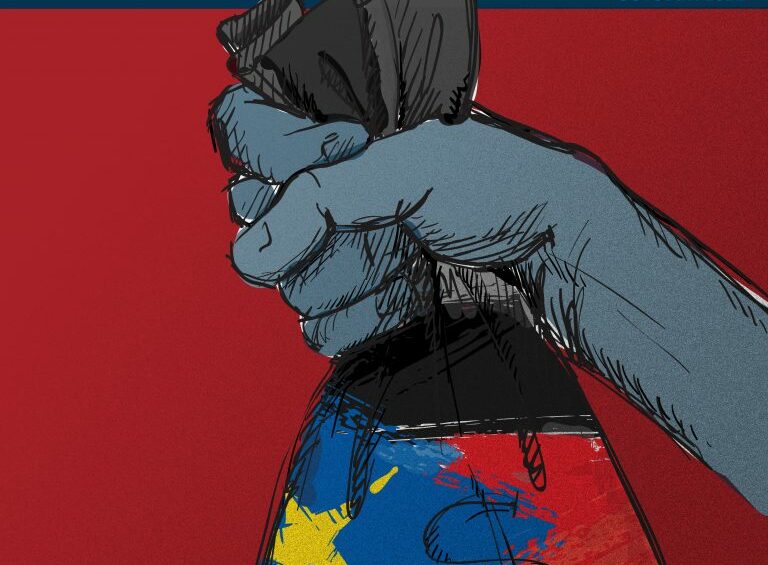
Cover of The Sentry Corruption report on South Sudan. (Photo: Sentry).
The advocacy group, The Sentry on Wednesday released a new report on South Sudan, detailing how nearly one billion US dollars was stolen in a massive scam involving banks in Qatar and Kenya.
It says 993 million US dollars were stolen in a massive bank credit scam that left devastating, deadly impacts on children and communities across South Sudan.
In its report titled “Cash Grab: How a Billion-Dollar Credit Scam Robbed South Sudan of Fuel, Food, and Medicine”, the Sentry revealed that Qatar National Bank, and CfC Stanbic, provided letters of credit in exchange for projected oil revenues in South Sudan.
The report says massive credit lines were turned into an opportunity to steal by corrupt leaders and their cronies, with the government of South Sudan left on the hook to pay back the loaned money.
The U.S-based advocacy group says the nearly one billion US dollars, officially meant to deliver fuel, food, and medicine across South Sudan, disappeared into a maze of international shell companies that never provided any goods or services.
This left people to die as hospitals went without medicine and neonatal ward generators went cold, said the Sentry.
“These massive kleptocratic schemes continue unchecked. Since these letters of credit scheme were launched, corruption in South Sudan has only escalated,” said Sentry Co-Founder John Prendergast.
“Shockingly, billions of dollars worth of contracts continued to be awarded to insiders connected to President Kiir, some of whom have already been sanctioned and involved in bribes and kickbacks.”
Several individuals identified in the investigation, who were paid but did not provide urgent services and supplies are still being awarded government contracts today, the report shows.
It also detailed how ineffective due diligence by the banks providing the credit facilities – coupled with the government’s lack of transparency and capacity to properly oversee the massive program – failed the people of South Sudan.
The investigation also included the review of hundreds of corporate records and government documents, as well as dozens of interviews with former officials and banking experts with first-hand knowledge of the program.
The Sentry’s investigation into the letters of credit program found that multi-million-dollar contracts were awarded to foreign-run companies, companies that only existed on paper, and inexperienced middlemen.
It also revealed that the Central Bank signed several credits facility with the Qatari National bank and CfC Stanbic, a subsidiary of South Africa’s Standard Bank Group.
The agreements, according to The Sentry allowed South Sudan to borrow 993 million US dollars in lines of credit, 793 million dollars from QNB, and 200 million dollars from CfC Stanbic.
The credit lines were supposed to be repaid through oil production.
The Sentry revealed that at the peak of the letters of credit program, more than two million people went without food, and hospitals and clinics had to treat patients without medicine, and fuel shortages resulted in black market price gouging.
In response, the Minister of Information and government spokesperson Michael Makuei Lueth said The Sentry is rather corrupt.
“They [The Sentry] are even corrupt by themselves. They are only fighting us because when they were beginning with us and they wanted us to give them something,” said Makuei.
“When we fail to give them what they want, khalaas[then], they turn against us. This is what we know about this Sentry. Anyway let the document be brought to us, we will respond.”
This is not the first time The Sentry has released a damning report on corruption in South Sudan.
In September 2019, the Group published a report called The Taking of South Sudan, which accused regional and international companies of profiting from the South Sudan conflict.
It revealed that several multinational corporations forged formal partnerships with, or provided material support to people and entities responsible for human rights abuses.
Recommendation
The Sentry called on the government to conduct a rigorous investigation into the allocation of letters of credit-backed contracts and those companies that did not deliver products, in line with the auditor general’s recommendation, and initiate asset recovery.
It urged the government to implement chapter four of the revitalized peace agreement, to address the crippling cycle of debt, economic mismanagement, and corruption undermining economic prosperity and fueling conflict.
The advocacy group also called on the government to create a centralized e-transparency system that allows access to government financial data to create government accountability and fair contracting.
Among other recommendations, The Sentry said there is a need to empower and resource oversight institutions, and need to implement an external third-party audit and investigation.
To the US government, the group said the department of treasury’s financial crimes enforcement network and the department of justice should investigate how the proceeds of the corruption appeared in the letters of credit program were laundered out of the country.
It also called on Kenya and Uganda to investigate illicit money flows, adding that authorities in the two countries should investigate the transactions identified in this report, in which money sent to bank accounts in Kenya and Uganda raised red flags for possible trade-based money laundering.
Support Eye Radio, the first independent radio broadcaster of news, information & entertainment in South Sudan.
Make a monthly or a one off contribution.
Copyright 2024. All rights reserved. Eye Radio is a product of Eye Media Limited.